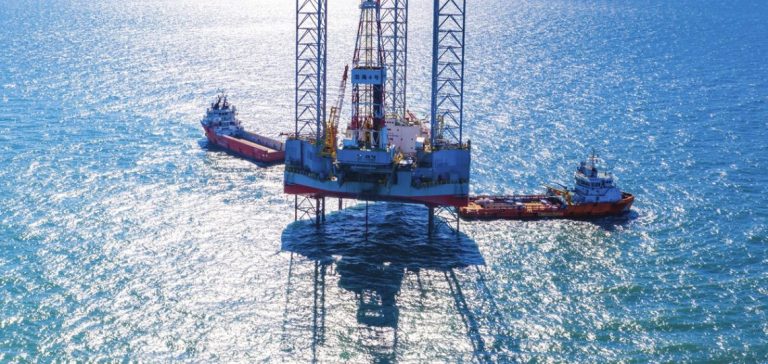CNOOC Limited, one of the leading energy companies in China, has officially launched production of the Bozhong 19-2 oilfield development project. This strategic project is located in central Bohai Bay, a region recognized as the largest crude oil production base in China. With an average water depth of about 20 meters, the site presents favorable conditions for the exploitation of offshore resources.
The Bozhong 19-2 project includes the establishment of new production infrastructures. Among these, a centralized processing platform has been inaugurated, accompanied by four new unmanned wellhead platforms. These modern facilities are designed to optimize the extraction and processing of crude oil, thereby ensuring efficient and secure production.
Infrastructure and Production Capacity
The development of the project plans the commissioning of 59 development wells, divided between 34 production wells and 25 water-injection wells. This configuration aims to maximize crude oil recovery while maintaining reservoir pressure through water injection, a technique commonly used to extend the lifespan of oilfields. The oil property being exploited is heavy crude oil, which requires specific technologies for its extraction and processing.
The project’s peak production target is estimated at approximately 18,800 barrels of crude oil per day by 2025. This significant increase in production contributes not only to CNOOC’s growth objectives but also to China’s energy security by enhancing its capacity to meet the growing domestic demand.
Technologies and Innovations Employed
One of the keys to the success of the Bozhong 19-2 project lies in the use of smart engineering techniques and standardized construction. These approaches have remarkably reduced the project’s construction cycle, thereby accelerating the start of production. Smart engineering encompasses the integration of automated systems and advanced monitoring technologies, ensuring optimal management of operations and reducing risks associated with offshore exploitation.
Furthermore, standardized construction has minimized delays and costs while ensuring the quality and reliability of the infrastructures. This method involves using predefined processes and components, thereby facilitating repeatability and efficiency in the setup of platforms and production facilities.
Impact on Offshore Resource Development
The commencement of production of the Bozhong 19-2 project marks a significant advancement in the development of offshore resources in Bohai Bay. This region, being the largest crude oil production base in China, plays a crucial role in the country’s energy supply. Increased efficiency in resource exploitation through projects like Bozhong 19-2 strengthens China’s position as a leader in the offshore oil sector.
Moreover, the project contributes to the diversification of CNOOC’s energy portfolio by integrating sources of heavy crude oil that complement other types of crudes already exploited by the company. This diversification is essential to mitigate risks associated with fluctuations in oil markets and to ensure long-term stability of energy production.
Future Prospects and Sustainable Development
In the future, CNOOC plans to expand its operations in Bohai Bay by capitalizing on the successes achieved with the Bozhong 19-2 project. The company intends to invest in new technologies and adopt more sustainable practices to minimize the environmental footprint of its offshore activities. Implementing environmental management systems and adopting emission reduction technologies are priorities to ensure responsible exploitation of natural resources.
The launch of the Bozhong 19-2 project by CNOOC Limited represents a major step in the development of offshore petroleum resources in China. Through technological innovations and effective management, this project significantly contributes to national energy security and the country’s economic growth.






















